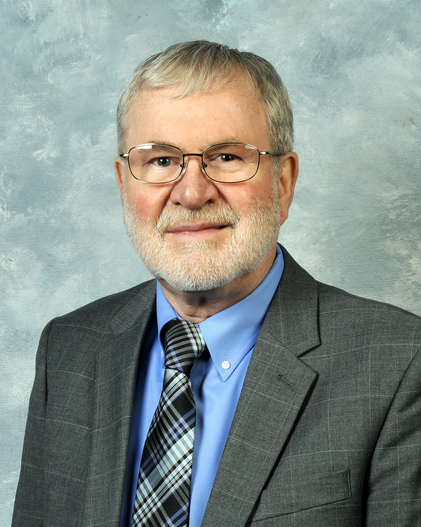Attention must be paid: Rural journalists attend workshop on covering substance abuse and recovery, confronting stigma
Published 4:25 am Wednesday, November 20, 2019
|
Getting your Trinity Audio player ready...
|
“His name was never in the paper. He’s not the finest character that ever lived. But he’s a human being, and a terrible thing is happening to him. So attention must be paid. He’s not to be allowed to fall into his grave like an old dog. Attention, attention must be finally paid to such a person.” – Linda Loman, speaking of husband Willy, title character in “Death of A Salesman” by Arthur Miller
Many human beings are suffering terrible things in America today, and not enough attention is paid to them. They are the victims of substance-use disorder, or addiction. Too many of their fellow human beings – their neighbors, even their relatives – don’t want to pay attention. “Not my problem,” they say. Even when someone dies of an overdose, some say “Better off dead.”
Quotes like that were gathered by Jennifer Reynolds and Kristin Mattson of Oak Ridge Associated Universities for their study that showed how the stigma attached to drug use is a big obstacle to addressing the problem in Appalachian communities. It’s also an obstacle to news coverage of the issue, so we brought journalists in the region to Ashland, Ky., Nov. 15 for a workshop, “Covering Substance Abuse and Recovery.” This is a summary; more detailed reports will follow.
We made sure to include “recovery” in the title to emphasize that there is hope for recovery, and that stories of recovery need to be told, to encourage those who need treatment for substance-use disorder to get it. Reynolds noted a Johns Hopkins University poll that found 30 percent of Americans said recovery from mental illness or drug addiction is impossible, and 50 percent said they would be uncomfortable being friends with someone in treatment.
“Stigma keeps people out of treatment, and stigma keeps people from getting recovery support,” Reynolds told the journalists. She said people who have been in recovery for years are still called junkies or addicts and can’t find work, and “A lot of them cited unbalanced media reports as a significant contributor to stigma.”
Contrary to the belief of many, she said, addiction is not a result of “weak moral character,” but is the result of genetic, community, economic and societal factors. About half of the predisposition to addiction is genetic, but that still isn’t completely understood, said Dr. Matt Christiansen of the Marshall University medical school in nearby Huntington, W.Va.
Other factors include adverse childhood experiences, social determinants, parenting and peer pressure, Christiansen said, adding that “Addiction is primarily rooted in trauma,” both mental and physical; examples include sexual abuse, other forms of abuse and the use of pain medications after surgery.
Even the experts’ favored method of addiction treatment, medication-assisted therapy, suffers from stigma applied by people who call it “trading one drug for another,” said Dr. David Wolfe and Kelly Whitley of Huntington-based Valley Health Systems. “It’s not just the medication,” but weekly groups, biweekly individual therapy, blood and urine tests, and medication checks, Wolfe said.
Wolfe and Whitley discussed the many barriers to treatment and recovery, including things that complicate recovery: lack of effective treatment in many rural areas; many rural doctors who could be prescribing MAT but don’t, some because of stigma; lack of transportation; shortage of mental-health professionals (mental illness and substance abuse are co-occurring problems, and one can contribute to the other); and personal and professional responsibilities. “Most employers won’t let you leave for a couple of hours once a week” for group therapy, Whitley said.
Jacqueline Pitts of the Kentucky Chamber of Commerce, which has tackled the problem in a way that no other state chamber has, said many employers are no longer dismissing employees for failing drug tests, but working to get and keep them in recovery: “I think the stigma is slowly changing.”
Pitts said the opioid epidemic is having a significant effect on employers and the economy, and could account for 20 to 25 percent of the lack of workforce participation by Kentuckians. She said the problem isn’t defined by any socioeconomic class: “It’s people we all know.”
Reporting
The workshop began with Eric Eyre of the Charleston Gazette-Mail discussing his Pulitzer Prize-winning investigation of how drug companies funneled vast amounts of opioid pills to small towns in West Virginia, and how his paper and others forced the Drug Enforcement Administration to release the information, including a recent release of data through 2014. “There’s an incredible amount of data here, and it’s easily accessible,” Eyre told the group.
The keynote speaker was Beth Macy, author of Dopesick: Dealers, Doctors and the Drug Company that Addicted America, recently issued in paperback. She said that after she signed the deal for the book, one editor told her “Your job is to make readers care,” and another said “Your job is to impose hope and order to a sad and chaotic story.”
The former Roanoke Times reporter said only 20 percent of people with substance-use disorder have access to medication-assisted treatment, so “We’ve largely left it to the institution of the American family to deal with the worst public-health epidemic in the history of our nation.”
Macy, who is teaching in New York and participated in the workshop via GoToWebinar, said the best way to start finding and telling the stories of addiction and recovery is to, as public TV’s Mr. Rogers said, “Find the helpers.”
She said many relatives and friends of overdose victims aren’t willing to talk soon after the tragedy, but putting their names in a “later” file can be a good investment. As moderator, I suggested that journalists watch for deaths that appear to have been caused by overdoses, and make regular checks with coroners; also, families that publish frank obituaries about losing a loved one to addiction can be approached immediately.
Terry DeMio, lead reporter on the Cincinnati Enquirer’s Pulitzer-winning “Seven Days of Heroin” series, followed Macy. She has been on the heroin beat for more than five years, and told the journalists, “Some of the best reporting is from the ground up,” in homes and neighborhoods. She said some call her an advocate, but she is not: “I’m a reporter… . I’m a reporter who carries naloxone,” the drug that reverses overdoses.
Deborah Yetter, health and social-services reporter for the Louisville Courier Journal, said in-person contact is better than the telephone, and suggested one conversation starter for people in recovery: “The one thing they always know is … the day they got sober.”
Yetter said she follows experts’ advice to avoid attributing individual traits to general populations, by work in general information about the topic. She said long stories work: “Readers have told us they stick through to the end because they want to see what happened to this person.”
Finally, Yetter said, when it comes to writing about substance abuse, don’t forget about tobacco and electronic cigarettes. She said she learned from teenagers how e-cigarettes have become epidemic in high schools.
The rural journalist on the program was Sharon Burton, editor and publisher of the Adair County Community Voice in Columbia, Ky., which appears to have done more in-depth coverage of drugs and recovery than any rural weekly in the nation — starting with the first edition of her paper 17 years ago this month.
Burton said she grants anonymity to subjects only “when people are talking about their loved ones,” and “I’m not doing stories on people who are in recovery for a short time. That puts pressure on them … especially in a small community.”
She said that after her recent series on “The Cost of Addiction,” she was invited to an Al-Anon meeting and a Celebrate Recovery meeting, but wasn’t invited to a pastors’ meeting with subjects of those stories. She said the organizer told her that he wasn’t ready for publicity, and that “God had put it on his heart to call pastors together and pray.” As a Christian, she said, “It really took a lot of weight off my shoulders.”
Earlier, she said, “I’m a fixer… . I was really getting frustrated.” In conclusion, she said, “The government’s not gonna fix this… . I’m optimistic because I think I see lights of hope.”
Al Cross is the director and a professor at the Institute for Rural Journalism and Community Issues, University of Kentucky.





